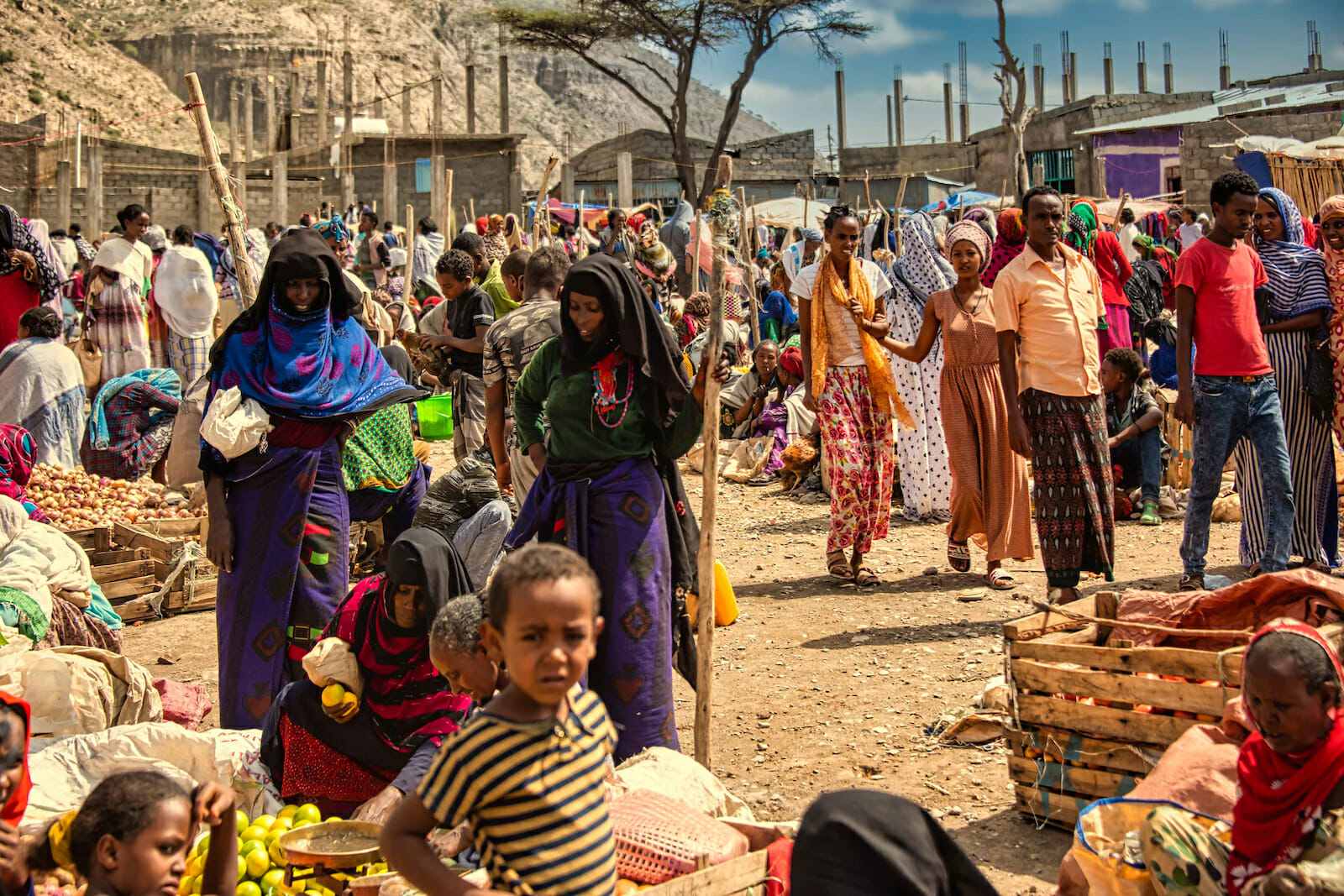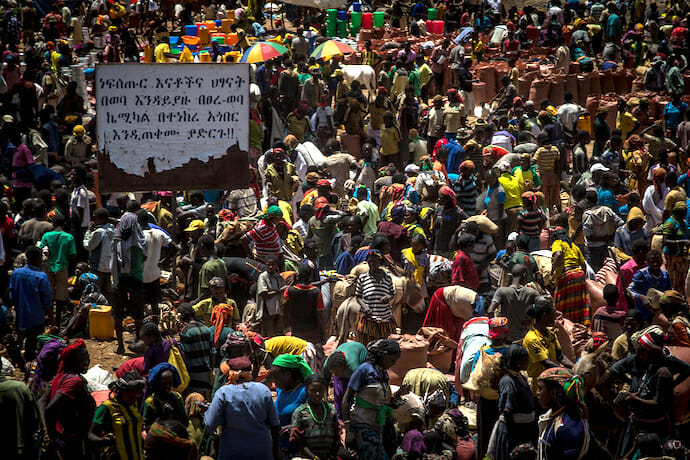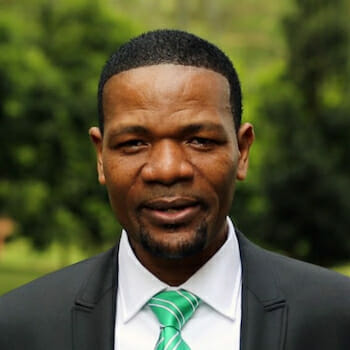
Africa’s Informal Sector and COVID-19: Is this an Opportunity to Revisit the Forgotten 80%?
“Teeth do not see poverty.” This African proverb reminds us, that even when circumstances are dire, people still manage to find something to smile about – COVID-19 notwithstanding. Since the first case was confirmed in Africa in late February, numbers have grown to over 4,500 cases in just one month, with hundreds of fatalities. The impact on the economy continues to unfold. As of March 2020, a 1.4% decline in GDP equivalent to $29 billion has been reported. These losses, which translate to lost jobs, income and enterprise opportunities to the over 1.2 billion people in Africa, have far and wide-reaching effects in compounding a very precarious scenario – where the region already needs to create about 13 million jobs every year.
A critical rethinking of the hard-hit informal economy in Africa
Africa’s informal sector accounts for over 80% of all employment in sub-Saharan Africa. This, therefore, means anything that impacts this informal sector needs to be taken with grave consideration. This is a sector that doesn’t understand the language of bank accounts and VAT but at the end of the day, this is the sector that drives the realities of Africa’s economies. These are the unsung heroes of Africa’s growth and have been so for a long time. Over 90% of new jobs created in Africa during the 1990s, for instance, were in the informal economy. This sector has also been described as the “present and future” of work in Africa.
Under COVID-19 however, this informal sector has been hit hard. At local groceries, shortages in critical consumer goods – driven first by panic buying and second, by the slowing down of the global supply chain in replenishing what was consumed – are becoming a common feature. Small retailers – the groceries, open-air traders, retail markets that trade under $150 daily, closed as a public health precaution, to arrest the spread of COVID-19.
It’s reasonably fair to ask some fundamental questions: How will these people, who depend upon daily sales for their sustenance, be able to provide for themselves and their families? For those who deal with perishable food items, how will they buffer the losses of rotting stock that ends up unsold due to reduced clientele as middle-class clients chose to panic buy and remain indoors, and as their stalls are shut down for public health precautions? As the informal sector languishes, a way needs to be created to help this all important economic sector. And that is the “stimulus package” route that lifts millions from the bottom of the pyramid into the economic rungs of society.
Maximizing impact of ‘stimulus package’ approach for Africa under the changing climate
Across the G-20 and indeed globally, countries are framing policy responses to buffer their economies and populations against the repercussions of COVID-19. The “stimulus package” has arisen as among most formidable policy measures to buffer economies, with some countries offering as high as 20% of GDP as emergency COVID-19 stimulus. The U.S., for instance, has enacted a package of some $2 trillion. Germany has announced $800 billion. Canada has announced over $50 billion, and the list goes on. Africa has been estimated to need no less than $100 billion.
Countries such as Kenya have taken the first step down this worthy road. But even more important for Africa, a continent whose productivity lags competitors in the global economy by up to 20 times, is how such emergency measures can be maximized as investments to accelerate the ongoing charge towards unlocking globally competitive climate action enterprises in the continent under the changing climate.

For example, Africa’s agro-market is estimated to be worth up to $150 billion each year in 5 years’ time. While it is open to global competition, empowering the local informal sector to take lead in developing competitive local products, that can compete for shelf-space with goods from elsewhere, offers an opportunity for developmental strides in the continent. Enabling this long-term perspective is the trajectory that stimulus packages in Africa should take. Not short-term cash transfers as is the traditional approach currently been used. And for this, the following policy measures can be taken.
First, prioritize buffering informal sector players in the continent’s catalytic sectors. These are economically inclusive sectors – meaning they engage the majority of the population. This implies that maximizing their productivity through value addition means putting more money in more pockets. In addition, these sectors can meet both climate and socio-economic priorities simultaneously. For example, decentralizing solar driers among cassava farmers – where cassava is converted into dried cassava chips that can be preserved for longer, sold to millers to be further processed into cassava flour or eaten as is/or fried into cassava chips, has seen incomes increase by 150% and reduce loss by 30%.
The use of solar driers to dry rice has proven to be 48 times faster than traditional open sun drying and results in better quality, cleaner, more hygienic rice that fetches more in the market. Decentralizing solar driers to farmers in local markets, to enable them to dehydrate and preserve their harvest that remains unsold at end of day and sell when demand peaks are not only cutting post-harvest losses but increasing earning up to 30 times. All these are delivered by innovatively applying an accessible climate solution – solar dryers – which enhances incomes without piling on the emissions that exacerbates climate change in the first place. Stimulus packages being discussed should aim to buffer these players by targeting the structures that they use to conduct their trade.
For example, cooperatives are grounded community financing structures for these players. The stimulus could be targeted at cushioning cooperatives against liquidity crunches hence ensures that delayed payments that may arise out of such a slow-down, do not render them insolvent and close them down.
Second is prioritizing human capital. A skilled person, capable of turning challenges, into enterprise opportunities is 4 times the value of produced capital and 15 times the value of natural capital. Over the years, Africa has overlooked its most important capital – its people and prioritized physical resources instead. But it is not a lost cause. To date, among key areas where Africa stands out is for being the most youthful continent globally.
What we must urgently do is invest in the skills retooling of these youth. These youth need to be supported to refine, improve and adapt their skills – regardless of disciplinary backgrounds – for application in establishing enterprises in the catalytic areas of the economy. Stimulus packages should, therefore, go to create incentives in the form of tax breaks, holidays, rebates – to enterprising youth already engaged in these areas, to encourage them and keep them afloat during these turbulent times. Inspiring these youths and ushering them to action through the spirit of innovative volunteerism is key at this moment.
Innovative volunteerism is structured guidance and inspiration to youth, to trigger them to purpose-driven actions, leverage their skills, talents, interests and ongoing initiatives as the premium to build mutually beneficial and complementary partnerships with the end goal of closing gaps along the agro-value chain by sustainably industrializing it using clean energy. In the process, they benefit by creating climate action enterprises that drive climate action and SDGs as well as solve major developmental problems in the continent.
Third, is more in the long term. Even as we ride through the emergency response period, the continent must invest purposefully towards unlocking credit opportunities in the informal sector. Africa’s informal sector represents an over $300 billion worth credit market. But this remains untapped because formal credit structures, the commercial banks, remain reluctant to invest in measuring the creditworthiness of players in the informal economy. Over 95% of their transactions are still in cash.
However, modern technologies such as blockchain, with immutability and transparency offer a way out to evaluate transactions in the informal sector. The continent should take lead in formalizing such blockchain technology, by establishing ground rules for blockchain governance. For example, being a nascent area, safeguarding local innovators who go into developing solutions in this area through versatile intellectual property protection could be a great starting point.
As COVID-19 rages, let Africa’s response also lay the ground for a new era of maximum productivity in the informal sector. It is in such that Africa can ensure future crises do not bite the millions hard. Always remember the Africa proverb that says there are no short cuts to the top of a palm tree.
The views expressed in this article are those of the authors alone and do not necessarily reflect those of any institutions with which the authors are associated.

